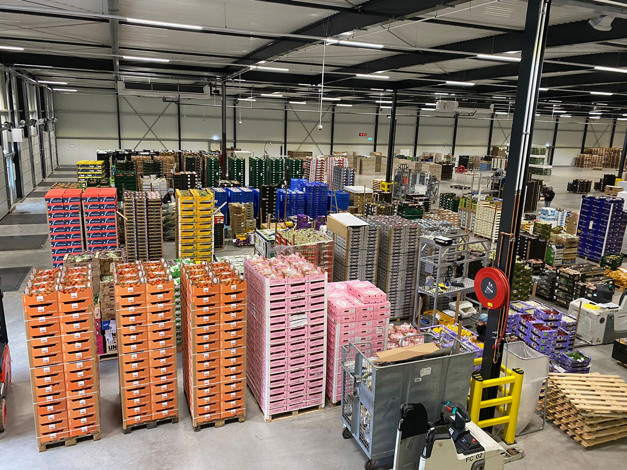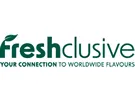In the winter, lower production in Mexico led to a strong demand for Spanish products on the North American market at Freshclusive. "It started in September with the first cucumbers and lasted until late October. From mid-November to early March, we managed to ship many Spanish bell peppers. Hopefully, this trend continues during the Dutch fruit-vegetable season," begins Ruud Krul.
Dutch exports' role in the North American and Japanese markets has increasingly changed to that of a gap filler. "We'd like to restart exports to North America in mid-May when Mexico leaves the market, but our main function is to supplement products when there are shortages. There's less and less room for this because Mexican and Canadian productions are growing. The significantly more favorable air freight rates from Europe than in recent years helps."

"The situation is somewhat the same for Japan. There are quite a few South Korean products on that market, but there are good opportunities for Dutch bell peppers and strawberry exports to Japan. For those markets, it's always a game to be ready as soon as there's demand. We then match that and products with our customers. That's different from sales to the Middle East and Hong Kong, where, with our mixed shipments, we provide clients with the entire available assortment every week. The first Dutch fruit vegetables are already being sent there," says Ruud.
"While the Middle East still has to buy many products, their local production isn't standing still. There's always some of that from late December to mid-April, and tomatoes and lettuce are increasingly being grown in high-tech greenhouses. There's plenty of sunlight available, but temperatures are very high." Freshclusive is definitely interested in participating in such a cultivation project in the future. "Finding the right partners isn't so simple, though. Everything has to fit," Ruud explains.
He doubts the Middle East will eventually export its products to Europe in large numbers. "Seeing what's being grown in Spain, the Netherlands, Morocco, and Tunisia when it comes to tomatoes, production in the Middle East will primarily remain focused on the local market. Their cultivation costs are very high, too."
According to Ruud, most of the demand for organic products, especially bell peppers, comes from North America. "There's also reasonable demand for that in the Middle East. But not so much in Asia. China is increasingly sending products to Hong Kong. There's still plenty of opportunities for premium products with corresponding packaging, especially in the Asian markets," he concludes.
 For more information:
For more information:
Ruud Krul
Freshclusive
Rietwijkeroordweg 4, 1432 JE
Aalsmeer, the Netherlands
Email: [email protected]
www.freshclusive.com
